Spain (Madrid)
Decades of over-exploitation have left our ocean and fish populations a shadow of their former selves. That’s why, after securing a ban on super trawlers in Australia, policy whirlwind and ex-Greenpeacer Rebecca Hubbard, and Irish environmental communications strategist Dave Walsh started European campaign Our Fish – to put an end to overfishing, to deliver sustainable fisheries and restore the oceans.
Fish don’t just provide millions of Europeans with protein and support hundreds of thousands of jobs. They are an essential part of ocean ecosystems that, when depleted or destroyed, can affect everything from the ocean’s ability to absorb carbon dioxide and produce oxygen, to the collapse or explosion of other species.
Dave puts it simply:”Stop overfishing, and stop tossing perfectly edible fish back into the sea. It’s not just a good idea, it’s actually EU law, as we keep reminding policymakers.”
“If EU countries stopped overfishing and rebuilt our fish populations today, it would create food for an additional 89 million EU citizens, an extra €1.6 billion in annual revenue, and over 20,000 new jobs,” Rebecca adds. “Not to mention helping to rebuild ocean health and resilience to climate change.”
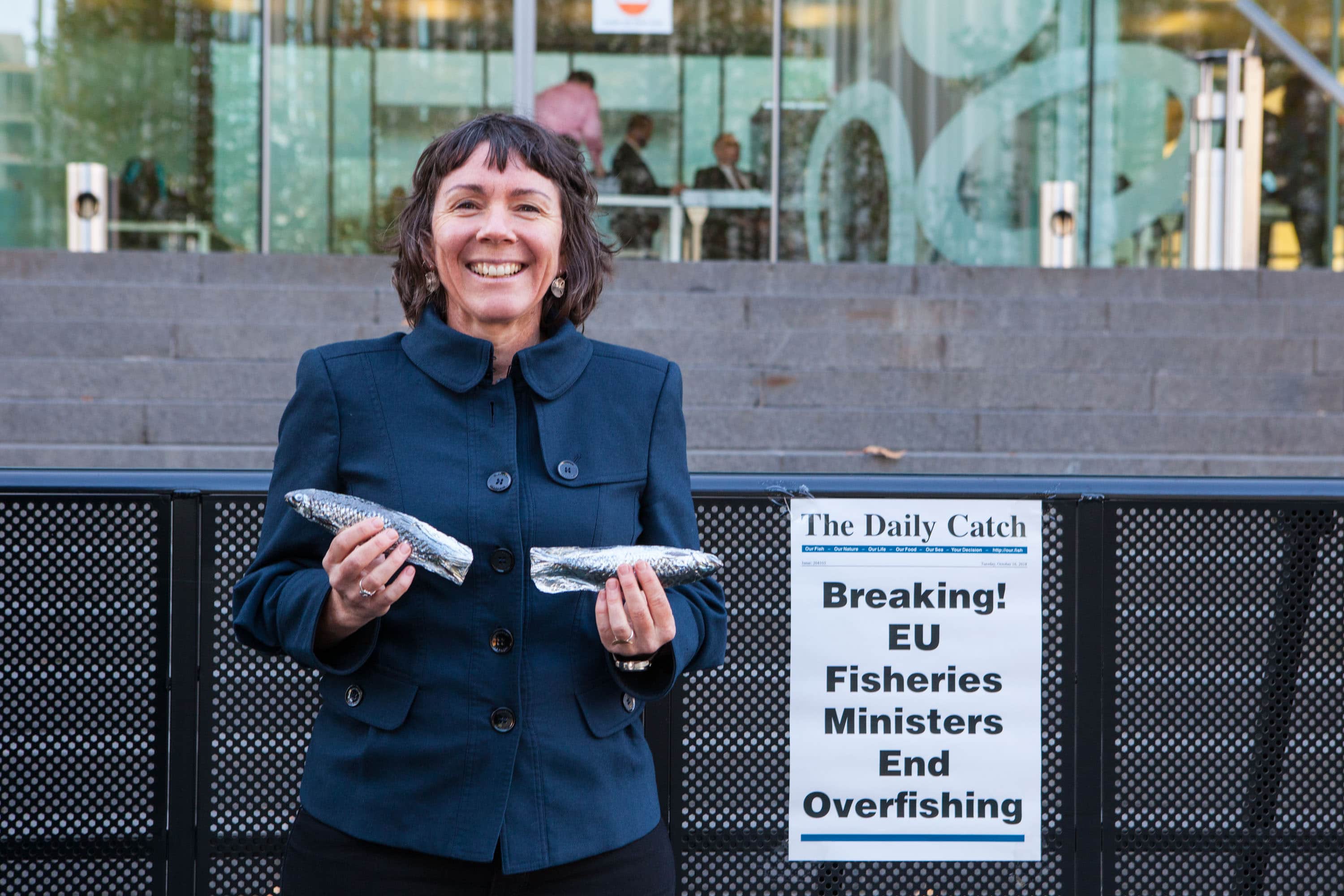
Our Fish was created to deal with a special problem. Earlier campaigns by other organisations had successfully convinced EU fisheries ministers to sign up to a bold reform of fisheries laws in order to end overfishing and the wasteful discarding of fish. Yet, while the battle had been won on paper, EU governments have continued with overfishing and discarding as usual – in other words, failing to implement the very laws they had created.
Our Fish challenges the status quo by combining the hard facts provided by scientists with provocative communications and innovative solutions, to put politicians on the straight and narrow, to counter the narratives proffered by big players in the fishing industry.
“We challenge EU governments to deliver transparent, sustainable management of Europe’s fisheries. We harness science, art, media and create events to make sure decision-makers grasp the full picture – and start working for all those who depend on both healthy fish and ocean and climate ecosystems – not just the interests of big industry.”
Back in 2013, EU fisheries ministers signed up to a new law that promised to end Europe’s addiction to overfishing by 2015 (or by 2020 at the latest), and to end the wasteful practice of throwing dead or dying fish back into the sea. Yet, despite this commitment, fisheries ministers are still ignoring scientific advice, and granting quotas to industrial fishing fleets far above the recommended levels. And despite the ban on discarding, fishing vessels are still throwing fish back into the sea, increasing the uncertainty over how many fish are really being caught. “Europe’s fishing industry is locked in an absurd race to catch as much fish as possible, as quickly as possible, for maximum profit.”
Rebecca explains that Europe’s seas and citizens are getting a bad deal. “EU governments must enforce the rules, to secure a sustainable future for our fish, for European food security, for the climate, and for the livelihood of all fishers.To ensure sustainable fish stocks for the future, we, as European citizens, must hold our governments to account. And that’s where Our Fish comes in.”
Our Fish wants EU Member State Ministers to set fishing limits at ecologically sustainable levels, based on the best available independent scientific advice (which they are currently failing to do), and to re-allocate national quotas to prioritise fisheries with a lower environmental impact, and those who can demonstrate that they are complying with the law.
It’s also campaigning for all EU Member State Ministers to implement effective at-sea monitoring and enforcement programs, to ensure an end to wasteful and illegal discarding, accurate real-time catch data, and a transparent, level-playing field across all fishing sectors and member states.
Rebecca and her small international team collaborate with organisations and individuals across Europe and beyond to deliver a powerful and unwavering message: “overfishing must be stopped, and solutions put in place to ensure Europe’s waters are fished in a manner that ensures sustainable fish stocks now, and in the future.”
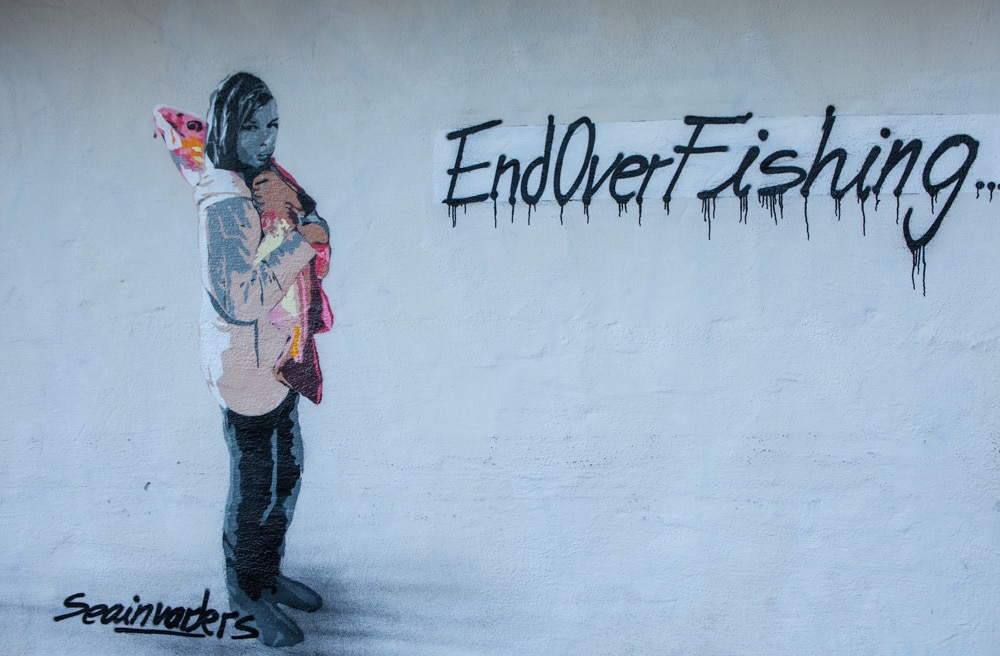
Before turning her focus to European fisheries, Bec campaigned on environmental issues. From 2001 she was on a mission to improve transparency and monitor impacts from salmon aquaculture, marine protected areas and ancient forest protection, and consumer campaigns on genetically engineered food.
“I grew up with surfing, farming parents, so I had a close connection to nature and the ocean from a young age. But I lived in a small, conservative town in Australia where I always felt like I didn’t really fit in.” It was at university that she says her eyes were opened. “I met people who were campaigning to stop uranium mines in sacred areas, for indigenous rights, to stop logging ancient forests, and it all became clear – the planet is diverse and beautiful, but our way of life is killing it, and if people don’t act to protect what’s precious, we will destroy it.”
But Rebecca also discovered that we can fight for it and win, “by using our own unique energy to create a better world, and keep it beautiful! From then on, it was obvious.” It was a few years later, when she started surfing and learnt about the huge problems facing the ocean, that the passionate campaigner decided to focus all her energy there, “as 70% of the planet’s surface and provider of every second breath, it needs all the support it can get!”
After about twenty years of environmental activism, Rebecca feels her greatest challenge is maintaining a feeling of hope, and internal energy levels. “On the one hand the challenge to stop climate change, to end overfishing, to turn the drivers of these problems around is enormous and it needs all our energy and belief that we can do it. On the other hand, if we are not happy, compassionate, (relatively!) balanced individuals within ourselves, we won’t make it.”
The current lack of political courage and leadership in Europe suggests we won’t have the promised sustainable, transparent fisheries management by 2020, despite what governments committed to, but this issue is bigger than just fish. Healthy fish and ocean ecosystems are fundamental to healthy life on our planet, including a functioning climate system. “By boosting the health of our fish populations and ocean ecosystems, we can also help push back against climate change. This connection between the ocean and climate is essential to where I think we’ll go next.”
In July 2019 Our Fish launched the excellently-named Fishyleaks, a website for whistleblowers to confidentially and anonymously expose illegal or unethical practices in the fishing industry. The platform is designed for people to share information, while minimising risk to themselves. They will verify the content using the open source platform, GlobaLeaks.
AtlasAction: We need massive, ambitious cooperation between EU governments to #endoverfishing, and to ensure the future of our fisheries and the communities that depend on them. Sign the petition.
? AtlasEvent ► Rebecca Hubbard was a speaker at Fixing the future 2019 in Barcelona.
Bio
Communications Advisor, Our Fish
Project leader
Rebecca Hubbard, Program Director, Dave Walsh, Communications Advisor
Support the Atlas
We want the Atlas of the Future media platform and our event to be available to everybody, everywhere for free – always. Fancy helping us spread stories of hope and optimism to create a better tomorrow? For those able, we'd be grateful for any donation.
- Please support the Atlas here
- Thank you!
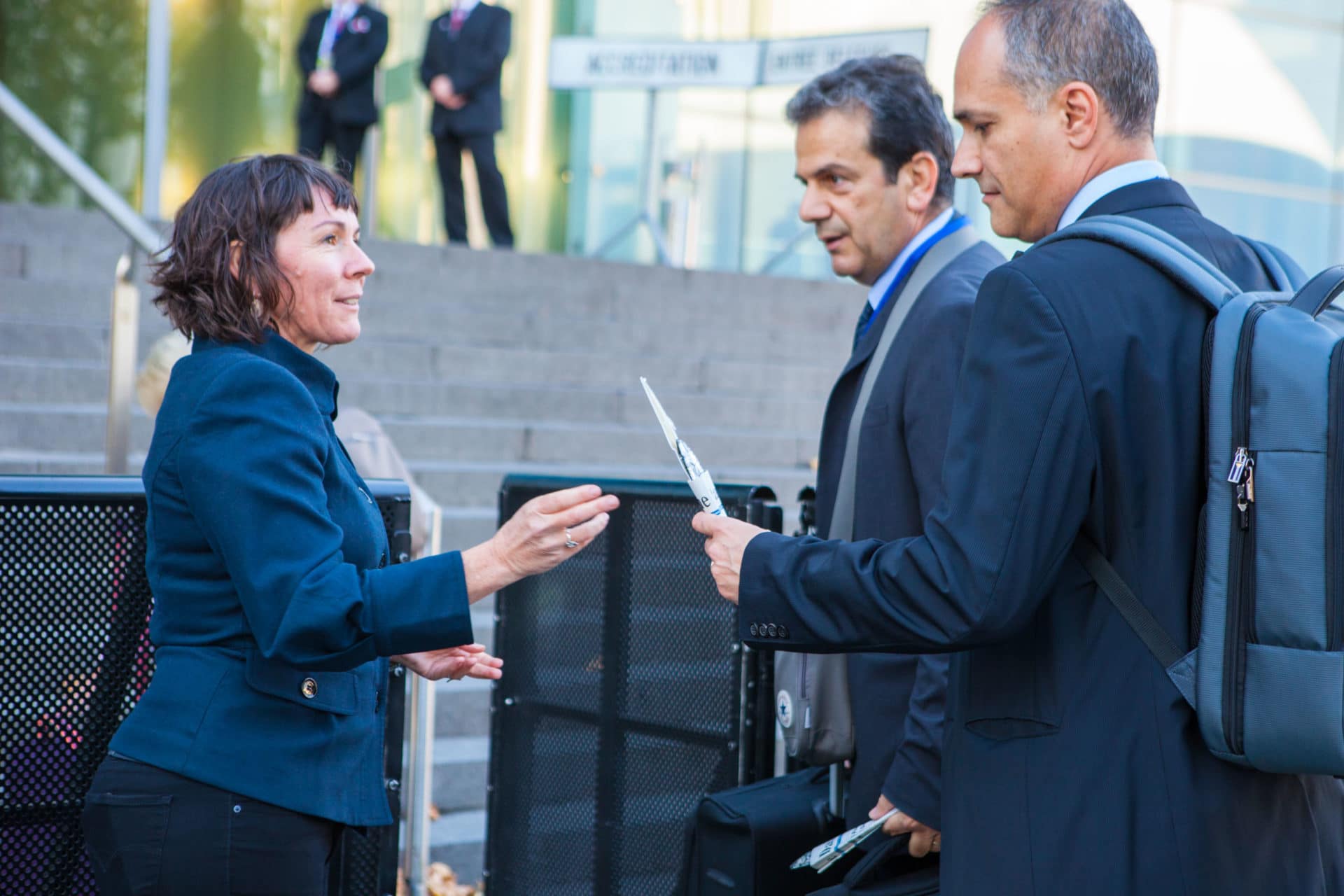
Our Fish Fishmonger offers chocolate herring and satirical newspaper The Daily Catch to delegates attending AGRIFISH meeting in Luxembourg in 2018
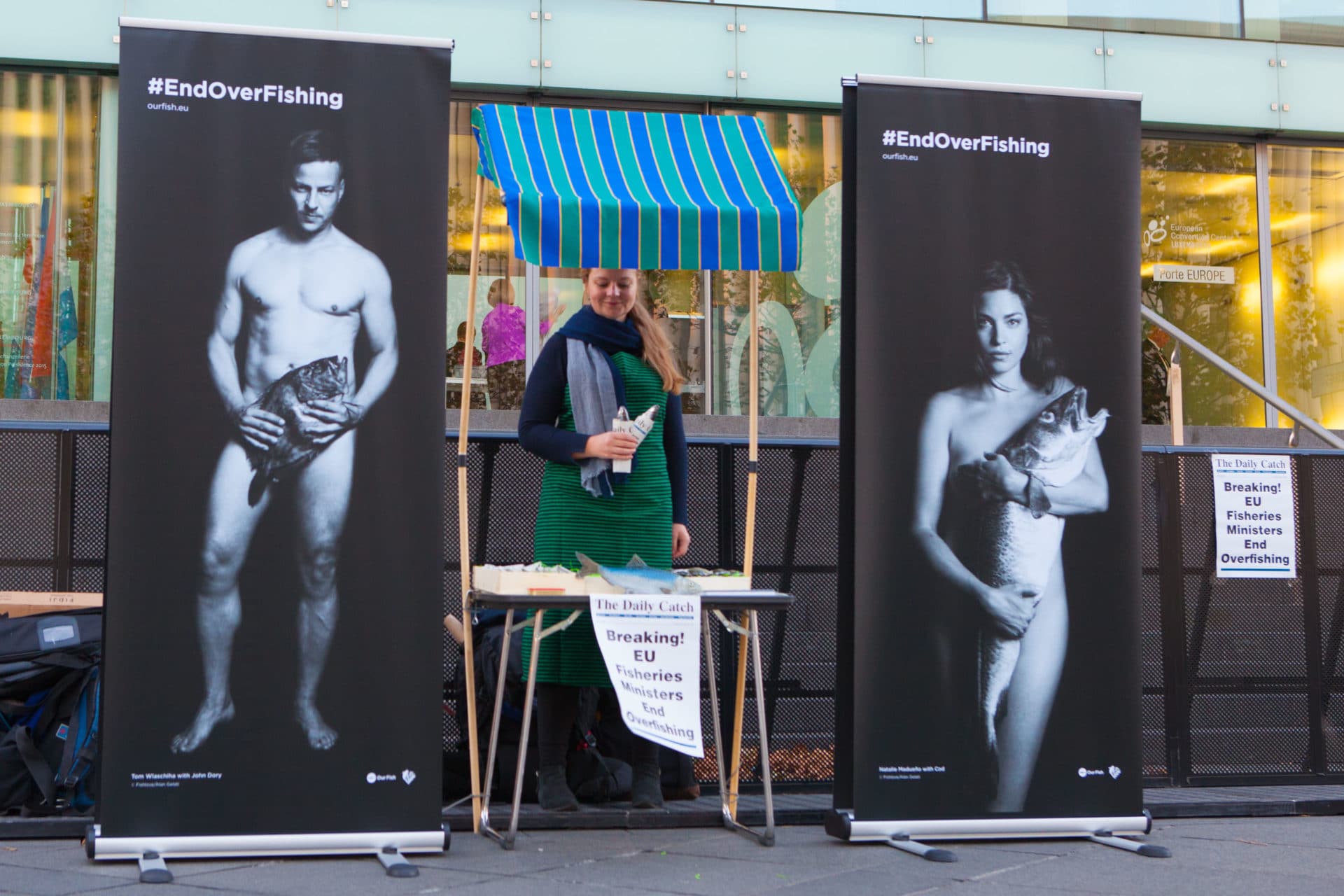
Our Fish fishmonger stand at Agrifish in Luxembourg
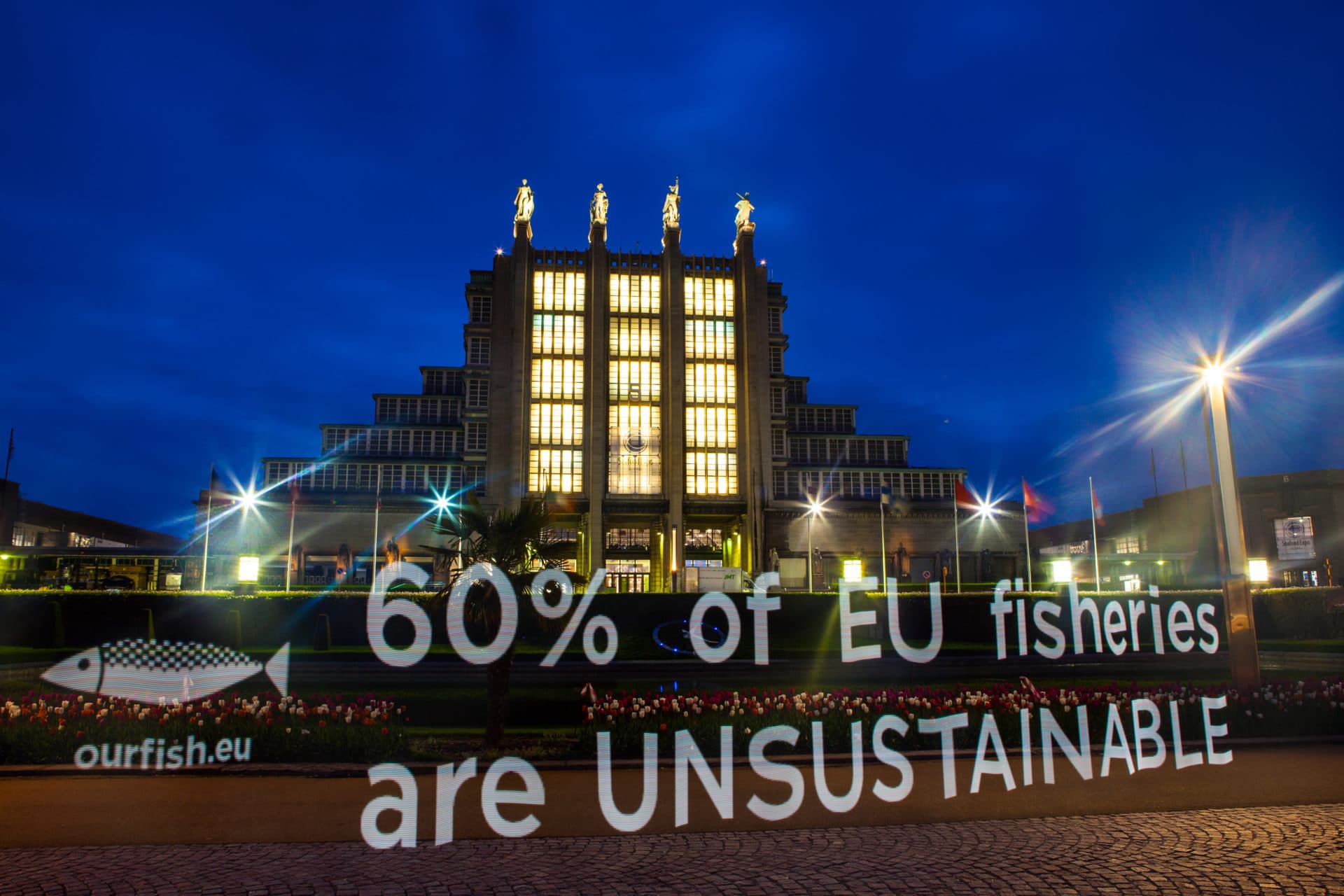
Light painting projection by Our Fish reading “60% of EU Fisheries are unsustainable” outside the Brussels Seafood Expo
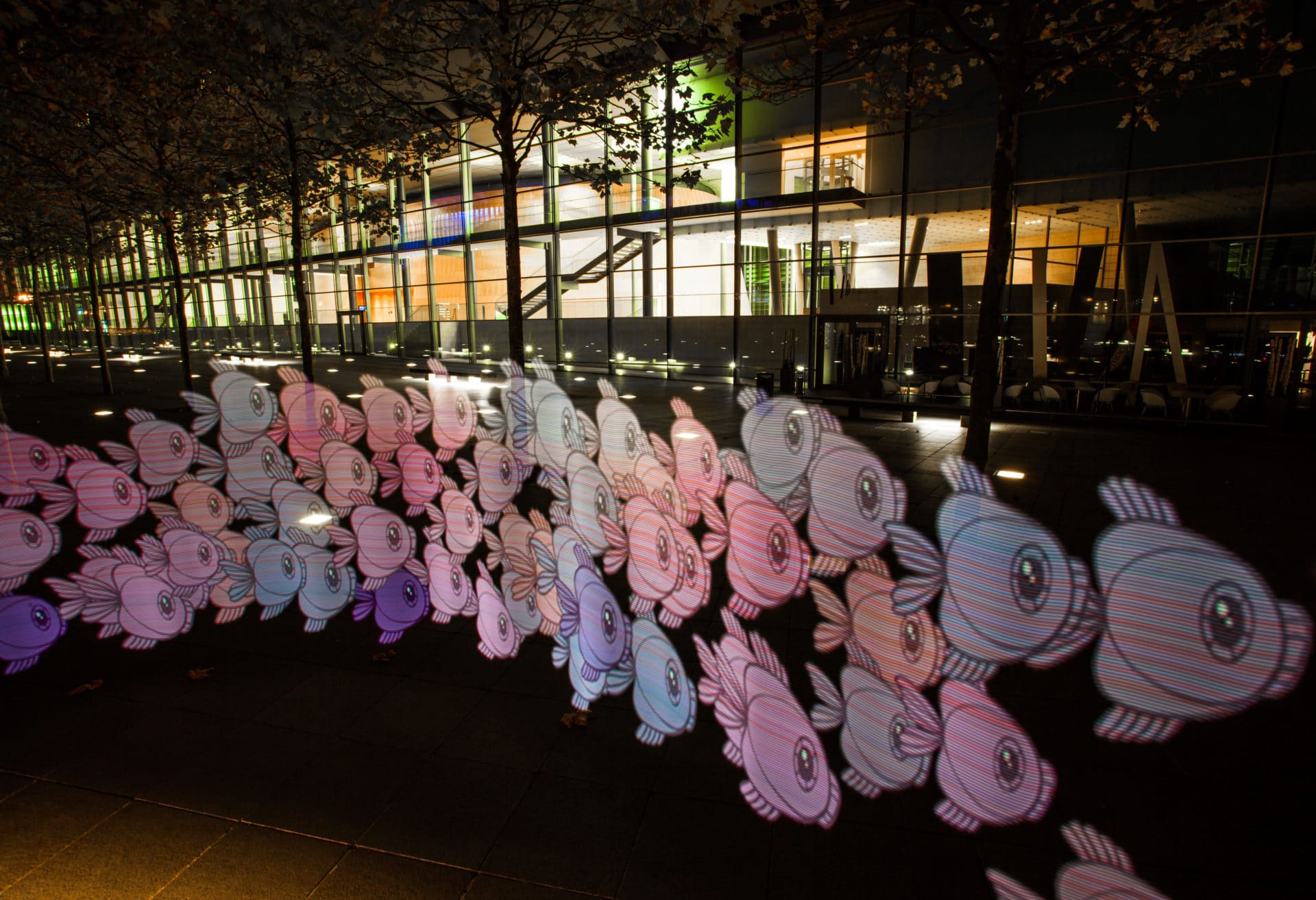
Fish swim by surround the European Convention Center Luxembourg (ECCL)
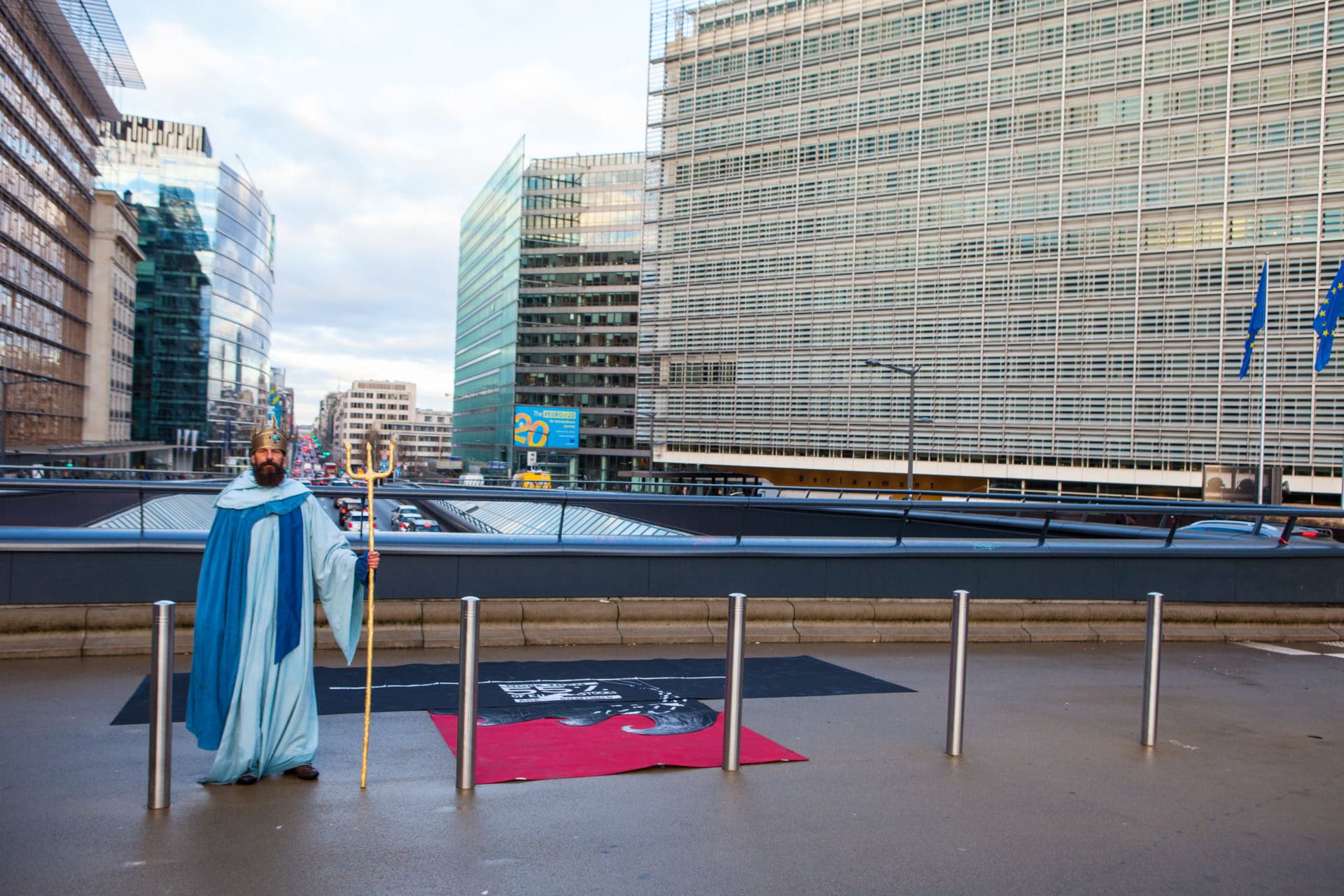
God of the sea, Poseidon, meets EU fisheries officials in Brussels, at the opening of the December Council Agrifish meeting

